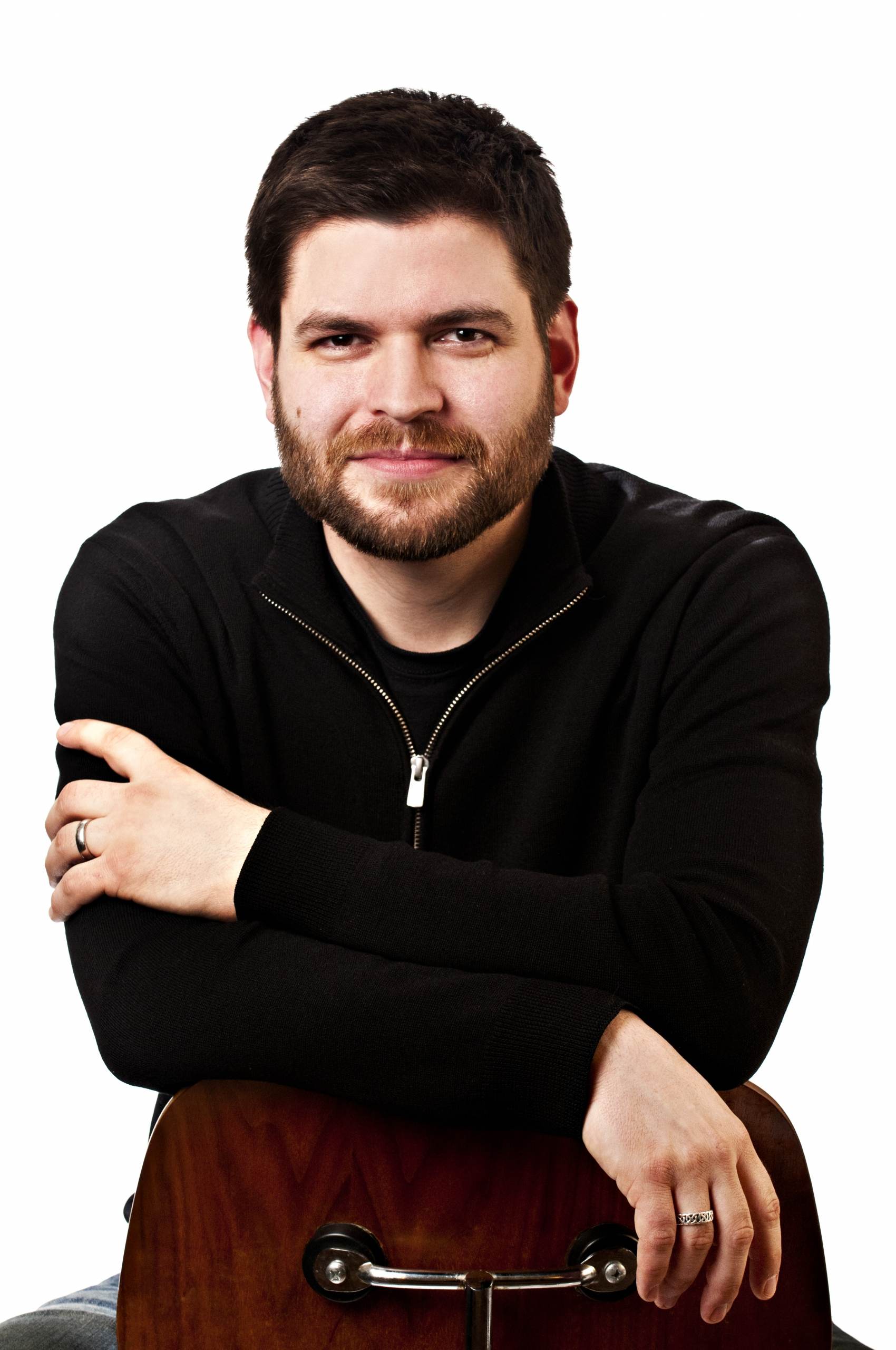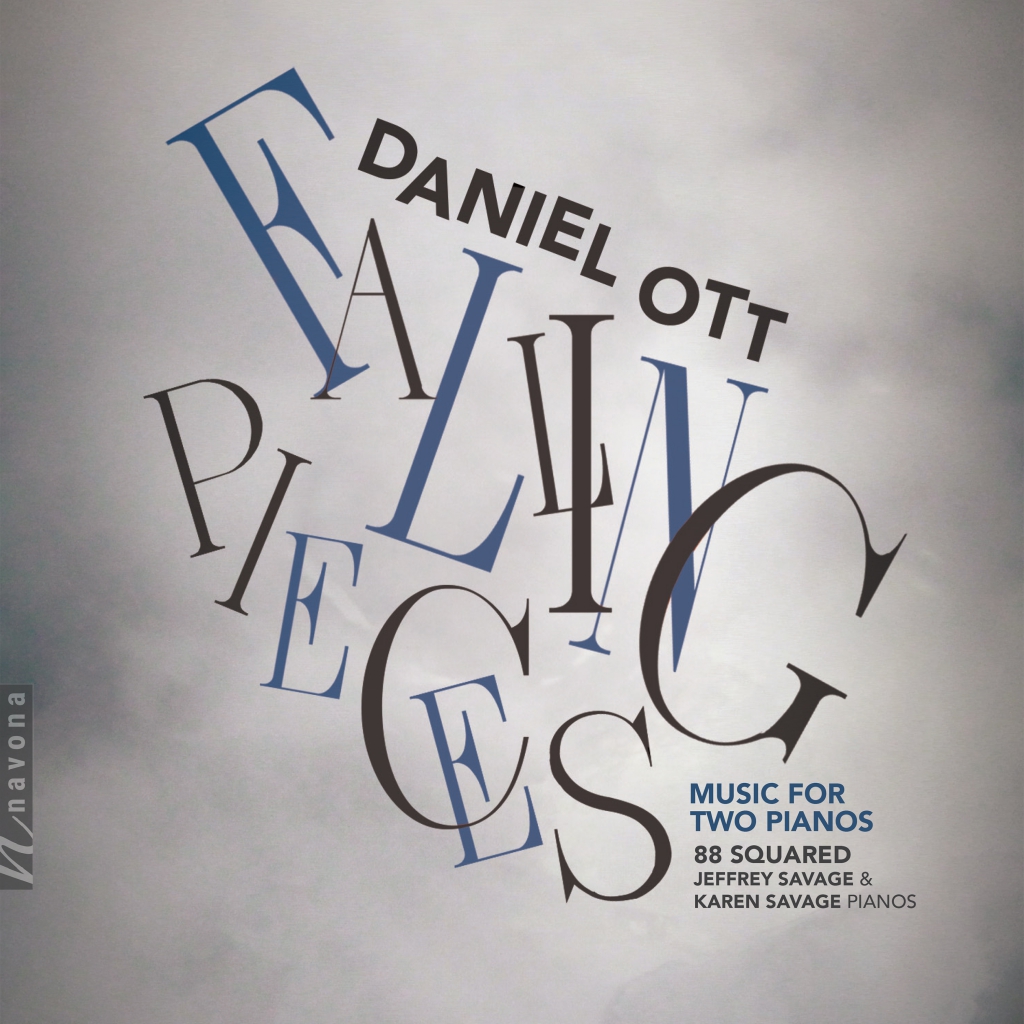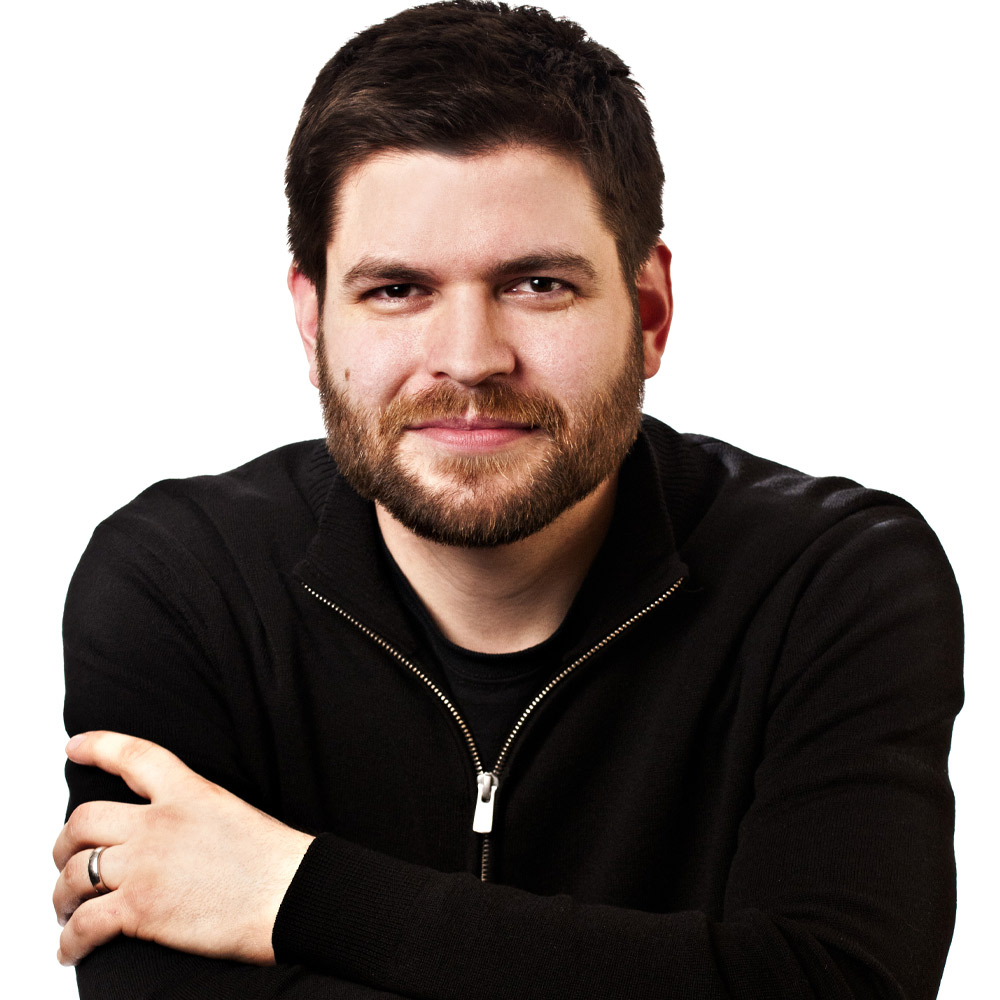
Daniel Ott is a recipient of honors from the American Academy of Arts and Letters and the ASCAP Foundation. He has received commissions from the National Symphony Orchestra, New York City Ballet’s Choreographic Institute, the Chiara Quartet, and Bargemusic, among others. Dan’s music has been heard all over the world, most notably at Carnegie Hall, Lincoln Center, the Kennedy Center, Sadler’s Wells, the Louvre, the Guggenheim, and the Foro Internacional de Música Nueva in Mexico. He holds degrees from the Curtis Institute of Music and the Juilliard School, and currently serves on the faculty of both Juilliard and Fordham University.
Today, Dan is our featured artist in “The Inside Story,” a blog series exploring the inner workings and personalities of our artists. Read on to learn more about Dan’s connection with Rio de Janeiro…
When did you realize that you wanted to be an artist?
I was probably 12 or 13 when I knew that I wanted to be a composer. I remember very clearly a day in middle school when some fellow students and I were talking about what we wanted to be when we grew up. Because I had started to write music at that point I said, “A composer.” Another kid said, “You can’t be a composer, because composers are all dead!” I remember saying, “Who do you think writes the music for movies?? Besides, I’m already a composer!” I suppose then I needed to live up to that statement.
If you could spend creative time anywhere in the world, where would it be and why?
I would probably have to say Rio de Janeiro. A couple years ago, I arranged and orchestrated an album by a Brazilian artist (Maurício Pessoa), working in a totally new field for me. Although I wasn’t originally planning on it, I ended up traveling to Brazil to conduct the recording session, too. I fell in love with not just the unbelievable natural beauty of the place, but also the warmth and dedication of the musicians there. Everyone was so great to work with. We hope to do another album in the not-too-distant future, and I’d go back to Rio in a heartbeat!
If you could instantly have expertise performing one instrument, what instrument would that be?
Even though I played the French horn very seriously through college, I’d probably have to say piano. Piano was my first instrument, and while I’ve continued to play my whole life, I’m really only just passable as a pianist (who has time to practice all those Chopin etudes?). And because of that, when writing for the piano, I sometimes feel that I’m constrained a bit by my own technique. That being said, there’s something about limitations that can help fuel one’s creativity, so perhaps I can just choose to remain blissfully amateurish when it comes to the keyboard.
What was your favorite musical moment on the album?
In general, I am extremely pleased with the way this album turned out, so it’s a bit difficult to pinpoint one particular moment. But I’m especially happy with how things came together for Fantasy on a Falling Line, which is a work of mine that I’m very proud of (though I’m typically disinclined to self-praise!). If I had to highlight one spot in the recording, I think it would have to be the way that Jeff and Karen (of piano duo, 88SQUARED) make an incredible transition from the end of Mvt. I to the start of Mvt. II. It’s such a drastic change in tone and mood—going from really energetic, almost manic, music to a very gentle and lyrical world—and it’s one my favorite things I’ve written. Jeff and Karen absolutely nailed it.
What does this album mean to you personally?
It means so much, for a variety of reasons. Skipping the primary reason (I’ll come back!), some of the secondary reasons include the fact that FALLING PIECES is my first solo album as a composer. It also represents the culmination of an unusually long process for me: I began work on Fantasy on a Falling Line over a decade ago. It was a piece that was originally commissioned to be around eight minutes long. But as I began working, the music took on a much larger shape. I had to set it aside a number of times to work on other things, but when I could at last return to the Fantasy, finishing it was the best feeling. But the most important thing that this album means to me is the fact I got to work with two incredible musicians, Jeff and Karen Savage! It’s not often as composers that we find ideal collaborators, but I found them in Jeff and Karen. They commissioned this work, and it really is their piece. I am thrilled we got to do this together!
Is there a specific feeling that you would like communicated to audiences in this work?
I generally shy away from suggesting what I want an audience to feel when listening to my music. That is such a subjective thing, and I’m happy when a listener feels anything, frankly! But I won’t deny that this album has a certain serious quality to it. There’s a fair amount of melancholy woven into the music, and at the end of the score to Fantasy on a Falling Line, I quote a few lines from the French poet Robert Desnos’s Saisons. Those lines have to do with the inevitable passage of time, which I suppose is something one begins to feel around midlife… That being said, I will mention that, on a compositional level, I try to stay focused on how craft and expression intersect—that the former drives the latter—and for that reason, I avoid musical gimmicks as much as possible (as well as complexity for its own sake). In the end, I hope the listener is simply moved!

FALLING PIECES is now available for streaming or purchase through Navona Records. Click here to explore this new album.

Daniel Ott is a recipient of honors from the American Academy of Arts and Letters and the ASCAP Foundation. He has received commissions from the National Symphony Orchestra, New York City Ballet's Choreographic Institute, the Chiara Quartet, and Bargemusic, among others. Ott’s music has been heard all over the world, most notably at Carnegie Hall, Lincoln Center, the Kennedy Center, Sadler’s Wells, the Louvre, the Guggenheim, and the Foro Internacional de Música Nueva in Mexico. He holds degrees from the Curtis Institute of Music and the Juilliard School, and currently serves on the faculty of both Juilliard and Fordham University.
